Cyber Law Assignment: Detailed Analysis of Facebook and Airbnb Cases
VerifiedAdded on 2022/11/27
|7
|1449
|326
Homework Assignment
AI Summary
This assignment analyzes two significant cyber law cases: Facebook, Inc. v. ConnectU LLC and AIRBNB, INC. v. ERIC T. SCHNEIDERMAN. The Facebook case examines allegations of breach of contract, copyright infringement, and misappropriation of trade secrets, focusing on the dispute over the origins of Facebook. The analysis includes the facts of the case, the issues of contract law and intellectual property, applicable laws like the Copyright Act and Computer Fraud and Abuse Act, and the court's rulings. The Airbnb case involves a subpoena issued by the Attorney General of New York, focusing on the quashing of the subpoena and the legal arguments around the authority to investigate and the privacy of user data. The assignment details the facts, legal issues, and applicable laws like the Executive Law and the 1982 Loft Law, and the court's decision regarding the subpoena. Both cases provide insights into the legal challenges posed by technology and the internet, covering issues such as intellectual property, contract law, data privacy, and government regulation of online platforms. The assignment requires a detailed analysis of the facts, issues, arguments, applicable laws, and conclusions of each case, including a discussion of the practical implications and legal strategies involved. The assignment follows APA format and cites scholarly resources.
1 out of 7
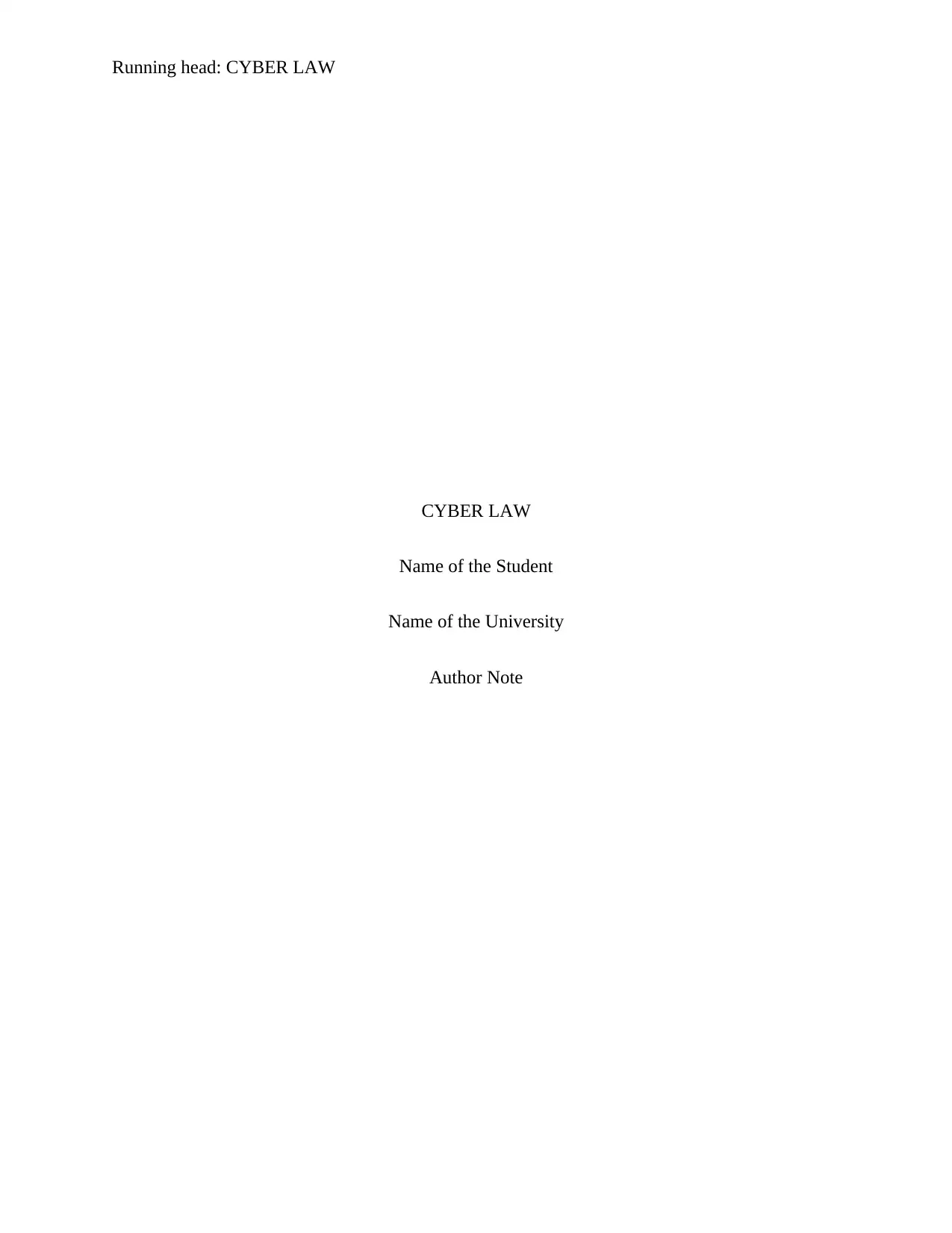
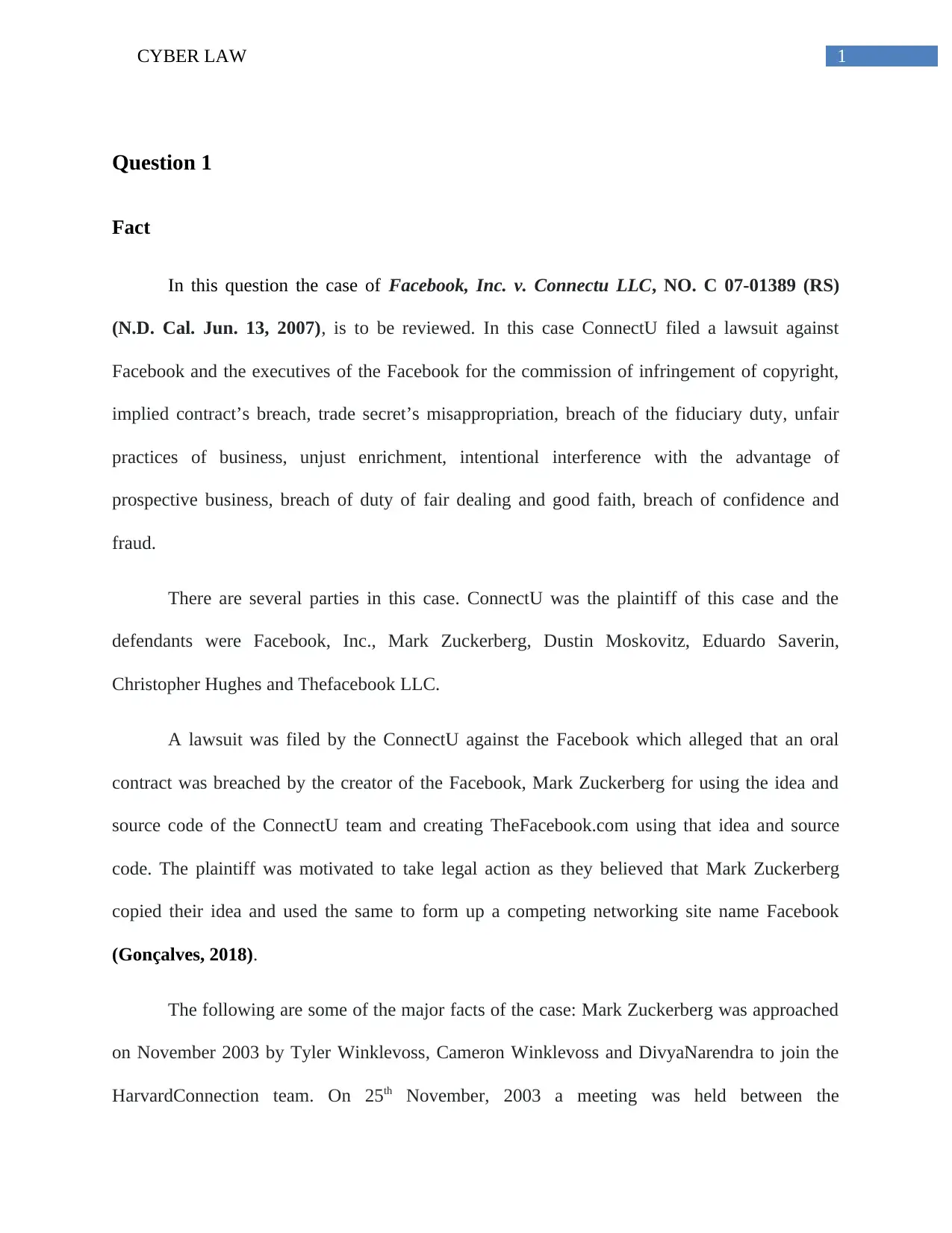
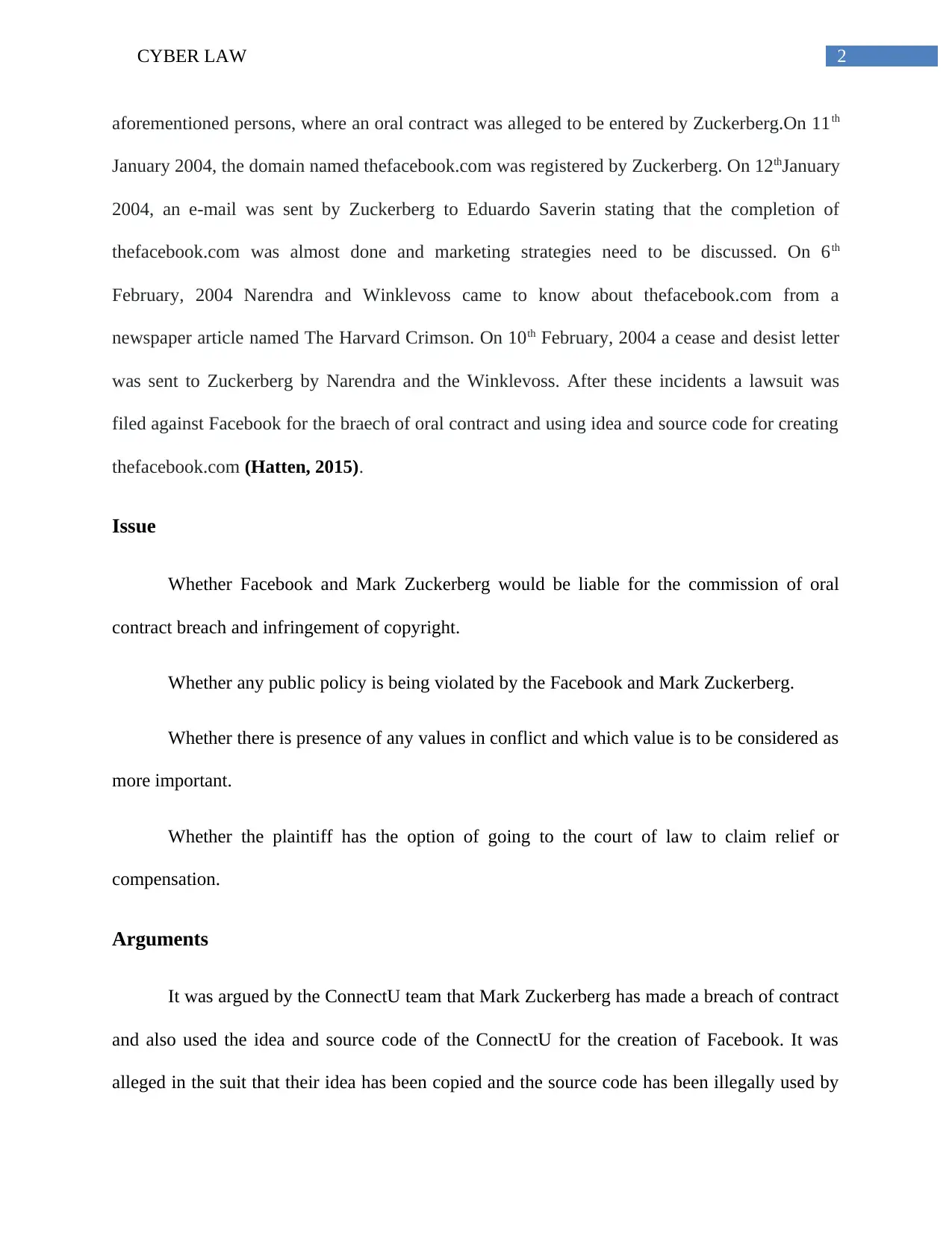

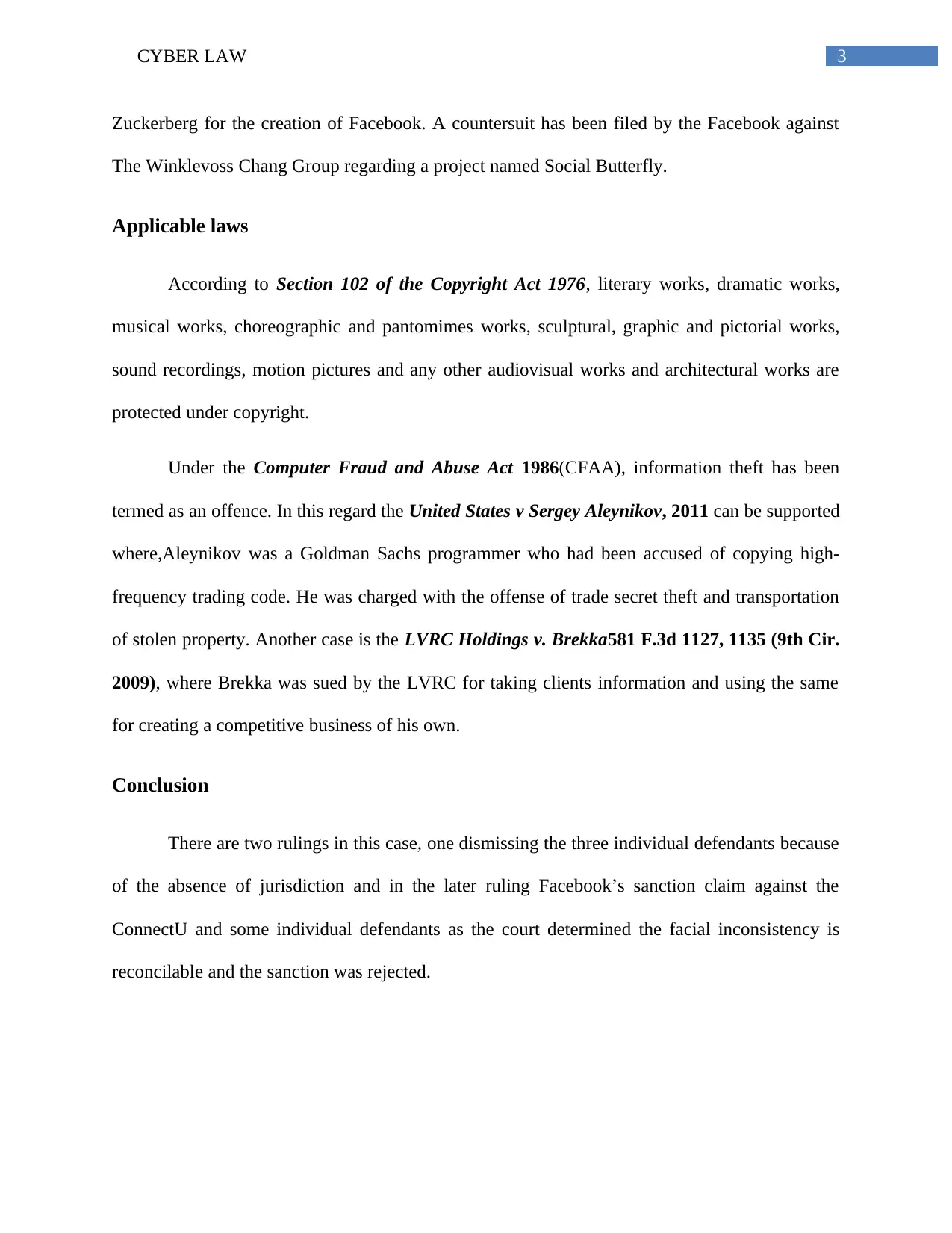
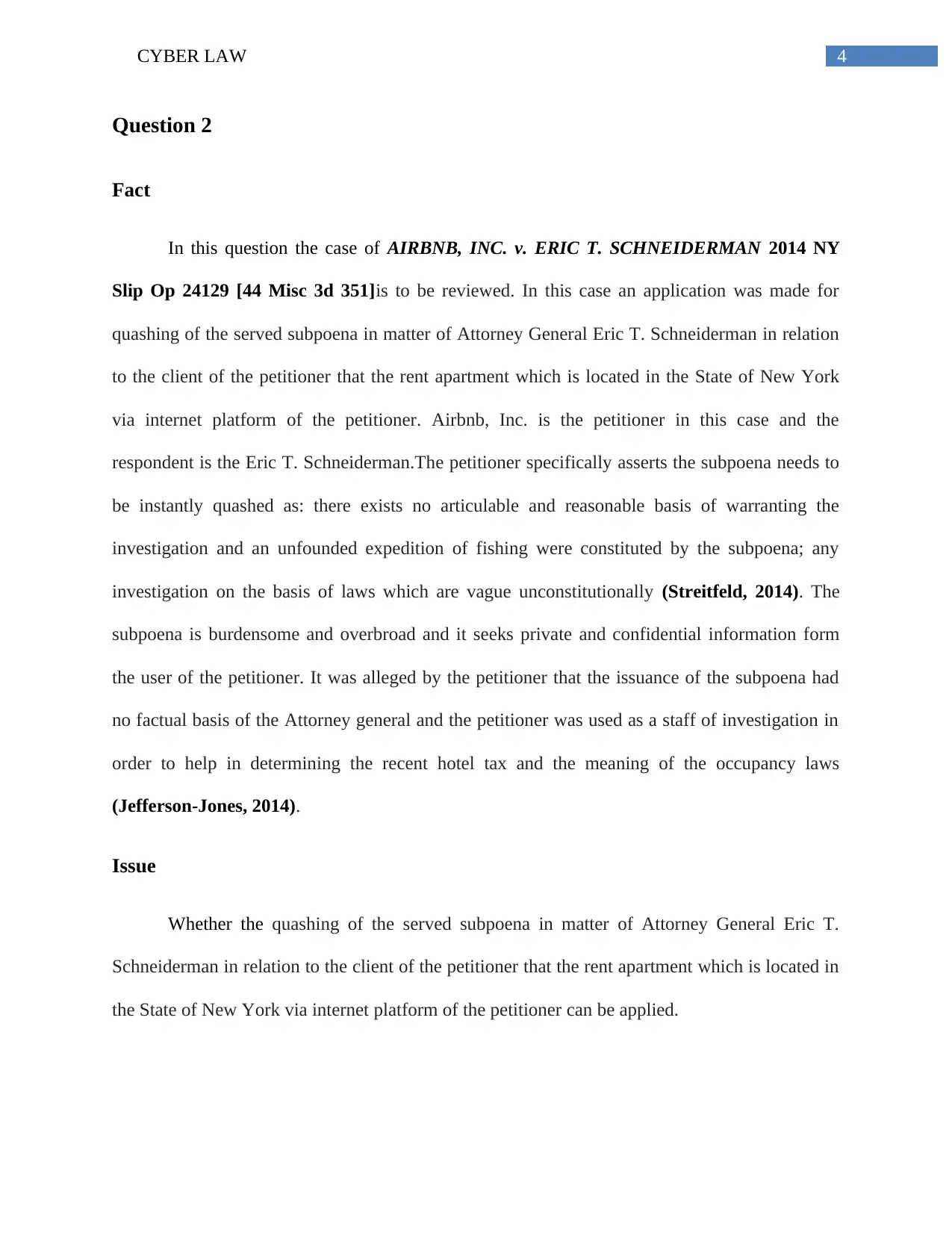
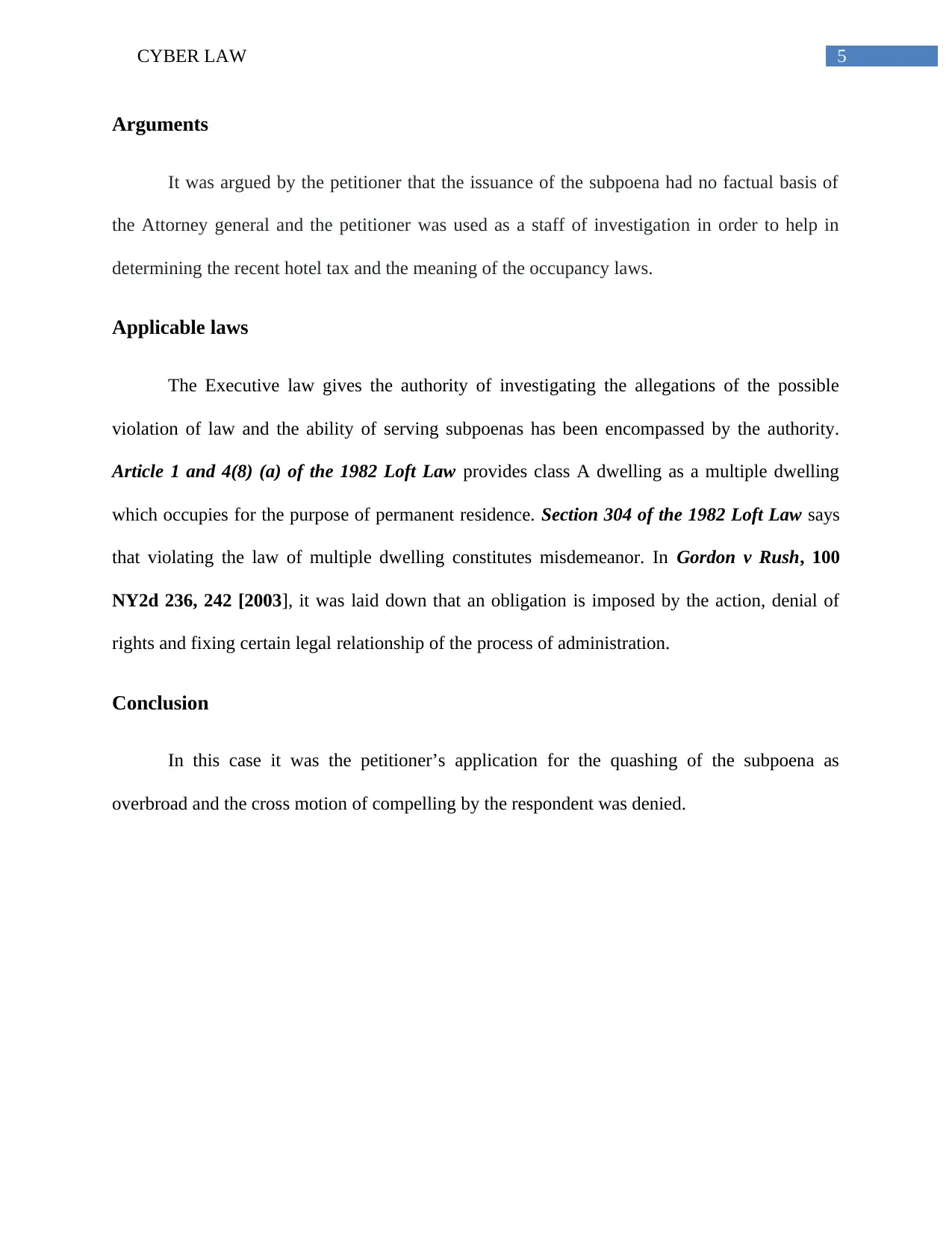
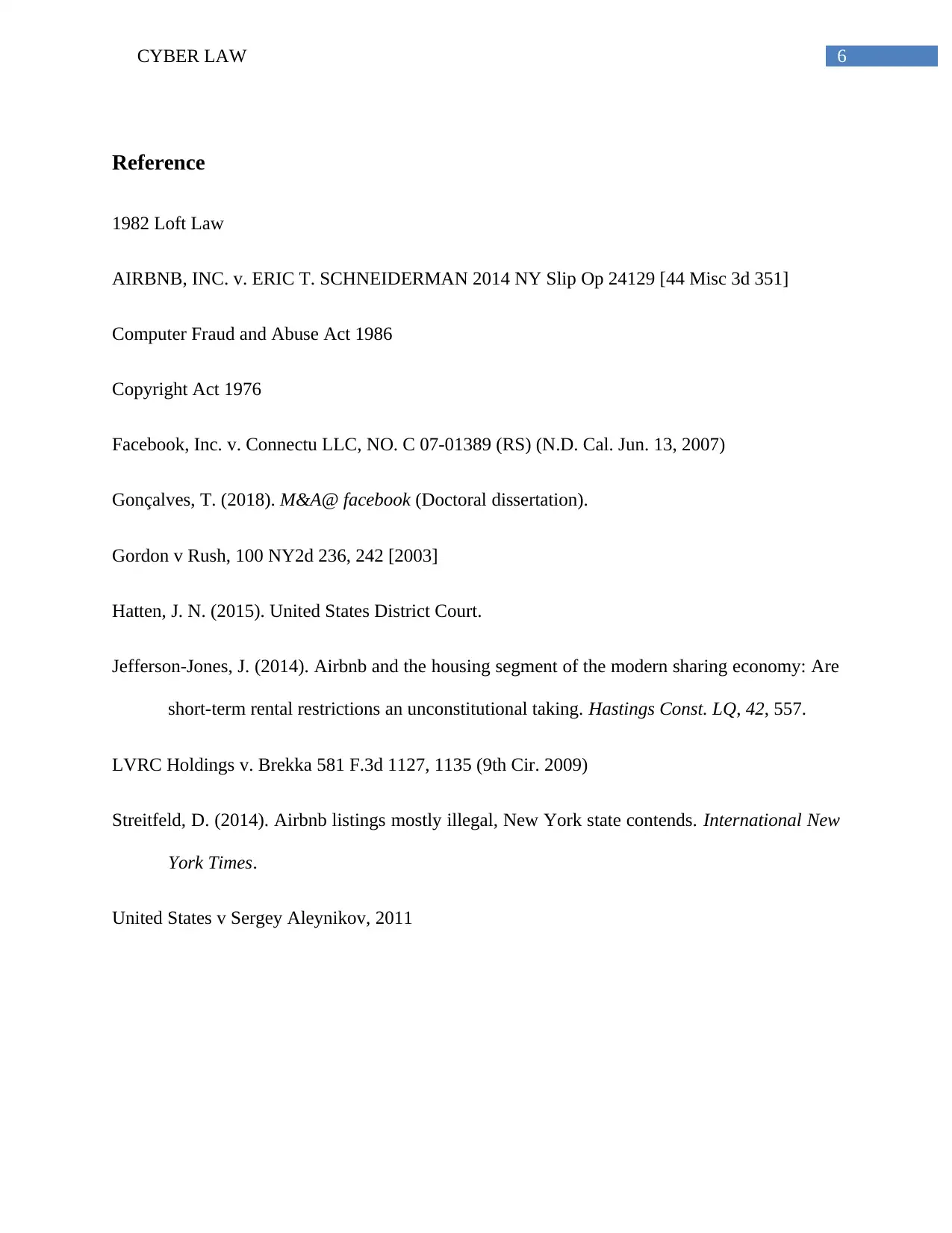
![[object Object]](/_next/static/media/star-bottom.7253800d.svg)